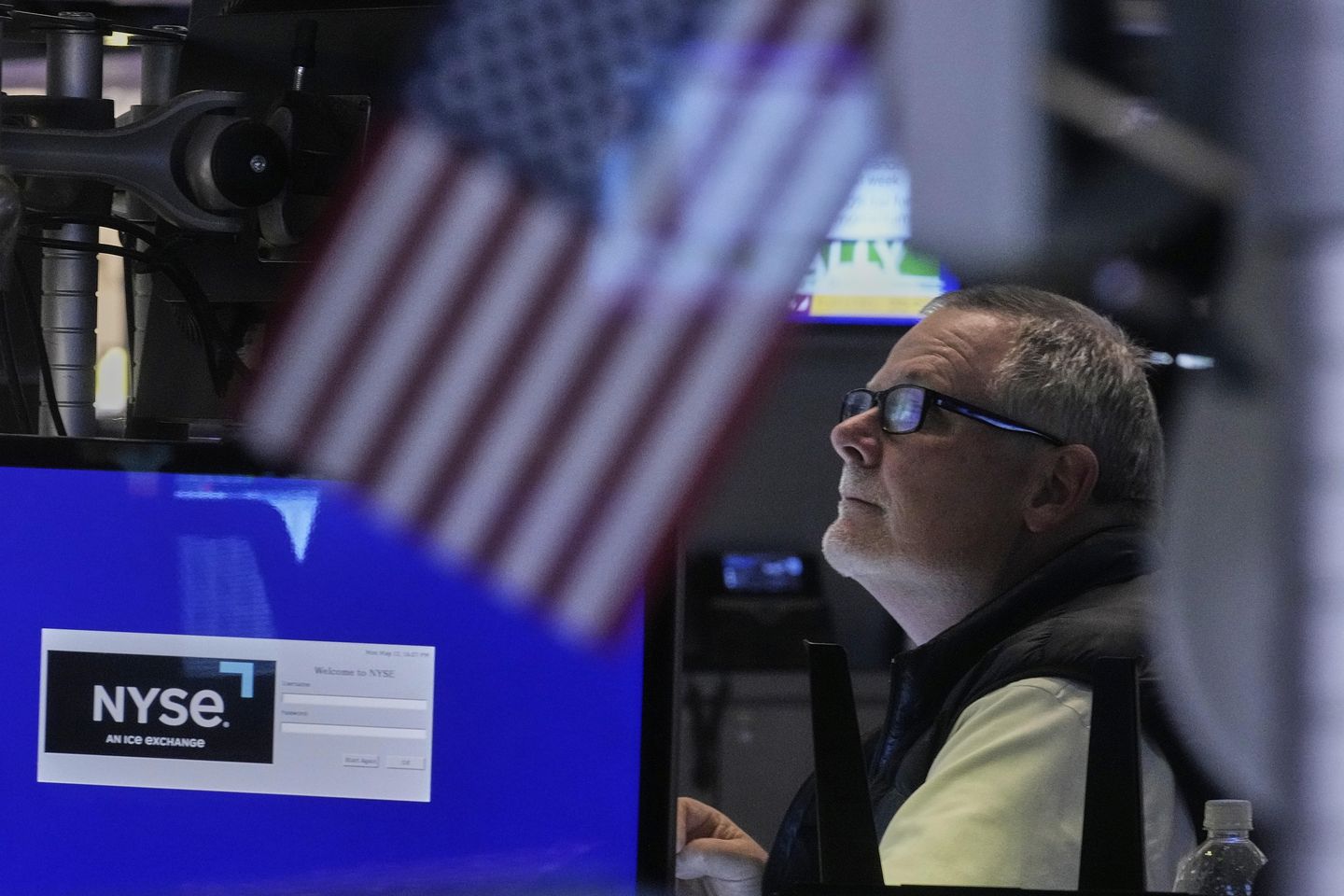
The business community is celebrating President Trump’s “One Big, Beautiful Bill” but there is an undercurrent of angst over higher bond yields because debt is growing, which helped spark a market selloff this week.
Stocks were relatively flat on Thursday as the yield on Treasury bonds crept down from their highest levels since October 2023, though some investors and lawmakers viewed a midweek rout as a warning sign.
Investors are demanding higher yields on Treasury bonds — traditionally a safe bet — because they see higher risk in lending to the U.S., given trade uncertainty and concerns about higher deficits under the GOP bill.
Moody’s recently downgraded the nation’s credit rating from Aaa to Aa1, citing growing federal interest payments and rising debt from federal spending and lower revenues.
“It’s almost like the perfect storm, if you will,” said James Mohs, an associate professor of accounting, finance and taxation at the University of New Haven.
Long-term Treasury bonds serve as a benchmark, meaning higher yields could lead to higher borrowing rates for consumers and corporations. It can also lead to lower stock valuations.
The situation is impacting Capitol Hill debate around Mr. Trump’s sweeping economic legislation, with at least one GOP defector calling the bill a “debt bomb.”
The GOP-controlled House early Thursday passed the bill containing tax and spending cuts, funding for border security and national defense and policy changes designed to spur American energy production.
The Congressional Budget Office estimates the bill would add $3.8 trillion to the deficit over 10 years, which most Republicans argue significantly undercounts the economic growth it will spur from tax cuts and regulatory rollbacks.
Two Republicans voted against the bill — Reps. Thomas Massie of Kentucky and Warren Davidson of Ohio. Rep. Andy Harris, Maryland Republican, voted “present.” All three were concerned about the measure’s impact on the deficit.
“Congress can do funny math, fantasy math if it wants. But bond investors don’t, and this week they sent us a message,” Mr. Massie said in a floor speech. “Moody’s downgraded our credit rating, and the bond investors who buy our debt and finance our debt demanded higher interest rates on the 10-year note, the 20-year note and the 30-year note.”
Mr. Massie said American families will be saddled in the coming year by sky-high interest payments on the debt.
“We’re not rearranging deck chairs on the Titanic,” he said. “We’re putting coal in the boiler and setting course for the iceberg.”
He later posted a screenshot on X of bond yields rising, posting: “Bond markets are already demanding higher returns because Congress isn’t serious.”
Some economic experts said bond investors might also be reacting to the Trump administration’s frosty approach to allies and pullback on global commitments, such as funding through the U.S. Agency for International Development.
Those factors “have created a lack of confidence in the U.S. dollar,” said M. Suresh Sundaresan, a professor of finance and economics at Columbia Business School.
“U.S. Treasury bonds are the vehicles through which foreign governments hold U.S. dollars, primarily,” he said. “I think this is a factor in long-term U.S. yields going up.”
The White House Council of Economic Advisers says naysayers are ignoring the positive economic impacts of tax cuts, deregulation and other parts of the Trump agenda.
The council is projecting the bill will generate 3% economic growth, which would lead to $4 trillion in additional revenue that would ultimately pay for the deficit spending.
“The Biden administration’s reckless fiscal policies ran up our national debt and fueled inflation, forcing the Federal Reserve to raise interest rates and borrowing costs for both everyday Americans and the federal government,” said White House spokesman Kush Desai. “Rising bond yields only underscore the importance of passing The One, Big, Beautiful Bill — the largest spending reduction in nearly 30 years — to get our fiscal house in order and turbocharge America’s economic resurgence under President Trump.”
Also Thursday, the U.S. Chamber of Commerce praised the bill as a vehicle for sustained growth.
“A competitive, pro-growth tax code doesn’t just grow the overall U.S. economy, it raises wages for workers and improves the lives of Americans,” said chamber Executive Vice President and Chief Policy Officer Neil Bradley.
The Dow Jones Industrial Average, which tumbled nearly 700 points Wednesday due to rising bond yields, was effectively unchanged on Thursday, dropping a little over a single point as the bond market stabilized.
The S&P 500 was a similar story, dropping a mere 0.04% while the Nasdaq rose 0.28%.
Yet some groups say the U.S. needs a wake-up call on its debt.
Michael Peterson, the CEO of the Peter G. Peterson Foundation, which studies America’s fiscal challenges, said “today’s dismal fiscal outlook reflects many years of bad fiscal decisions.”
He said the U.S. is locked in a dangerous cycle, with growing deficits and rising interest rates leading to more debt.
“With the current budget bill potentially adding trillions to the amount the Treasury will be forced to borrow, it should come as no surprise that investors would demand a premium for the higher risk level,” Mr. Peterson said. “As Washington continues to ignore its basic fiscal duties, financial markets are watching — and increasingly concerned.”
• Lindsey McPherson contributed to this report.












